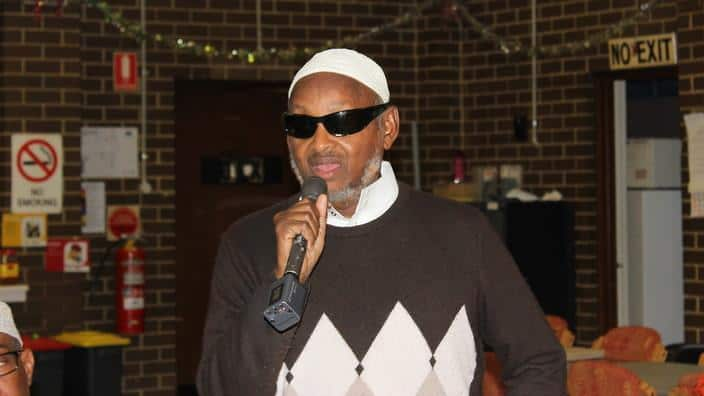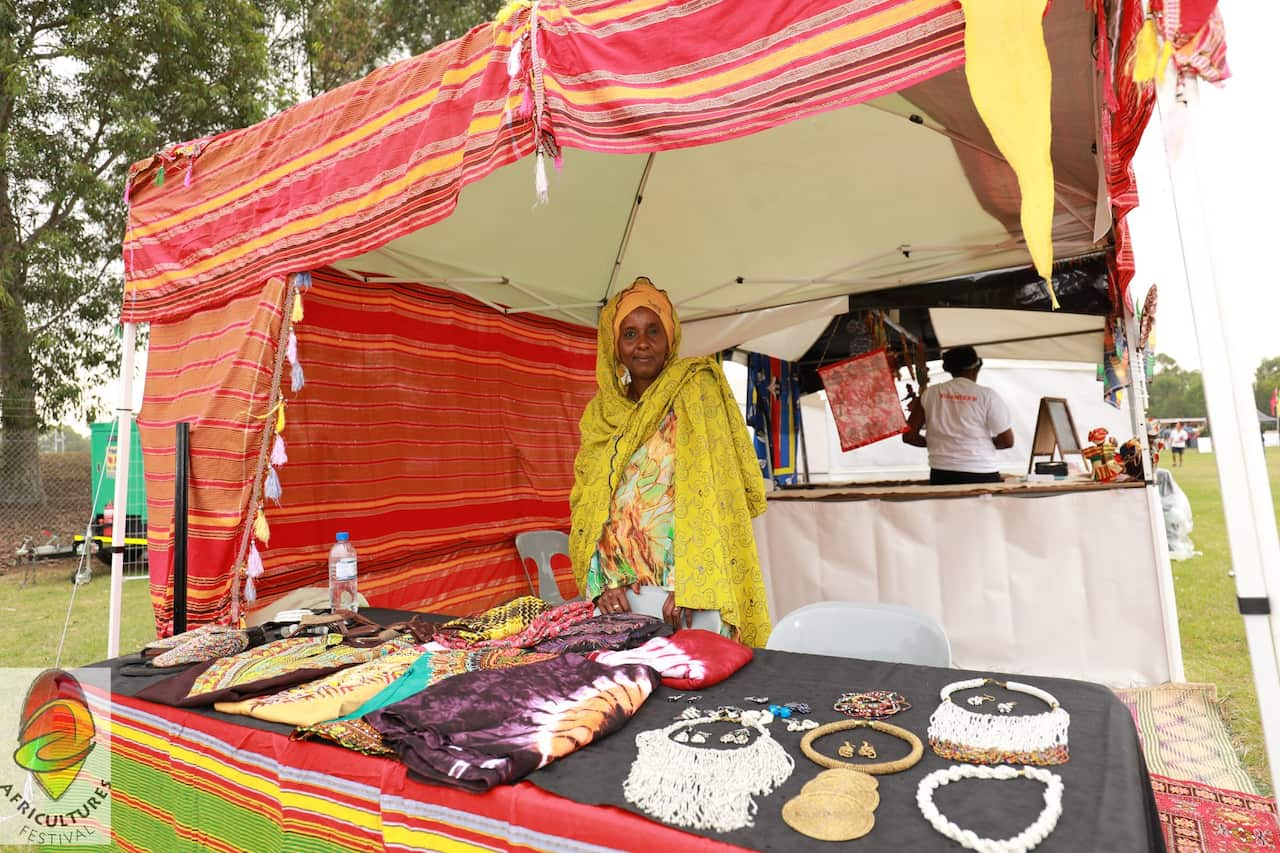At a wedding reception in Melbourn’s north, a Muslim nikah is taking place in a simple ceremony where vows are exchanged.
Seated at the wedding top table is the Imam who performs the ceremony, with the groom and his family on the one side and the bride's father and other male members of her family on the other.
Sheikh Issa Musse, an Imam and marriage celebrant, is conducting the exchange of vows in line with the religious practice.

After asking the groom whether he accepts the bride to be his wedded wife and the groom answers 'yes', which normally is the end of the proceedings, Sheikh Musse asks the groom to also make a pledge, to never commit domestic violence.
I am pledging to treat my family with love, peace, compassion, kindness, and free from domestic violence.
Though it's not a part of the normal ceremony, the groom repeats the pledge which is received with thunderous applause by a room full of men of all ages and cheered by women accompanying the bride in the room next door.
While there's no data available on the extent of family violence in the Somali community in Australia, Sheikh Musse says he has met many women impacted by domestic violence in the community adding that "no community is immune to it."
"I was hoping that we as Muslims would be least affected because, for religious reasons, drugs and alcohol aren’t widely used in the community," he told SBS Somali. “But I am always approached by women who complained about domestic violence."
This is the second time the Sheikh has asked a groom to make this pledge and while many have welcomed this initiative, it has its critics too.
After the first pledge at a previous wedding, the Sheikh says a man approached him and said: “can you also tell the women not call the police”.
“If the boys keep their promise, the couple wouldn’t have a problem,” Sheikh Musse replied to the man, pointing out that men are the perpetrators of violence in most cases.
Saado Abdikarim who is the Director of Somali Welfare Association and co-founder of Africultures festival welcomes the initiative but is apprehensive of its efficacy unless the "underlying cultural issues" are addressed.
"When the Sheikh is advising somebody to not [commit domestic violence], especially during a ceremony where everyone is excited and mentally they are in a different world, how would that be effective?."
"Because domestic violence is very complicated, it isn't something that just happens, it's a culture, it's a habit and it's a behaviour somebody develops. It starts initially with one step," she says.

Sheikh Musse says religious leaders have a responsibility to act against domestic violence.
“We, the Imams, haven’t done a good job for the Muslim youth. We should be educating our youth [about domestic violence],” he says.
Ms Abdikarim agrees and says an early consultation before the young members of the community start a relationship is preferred.
"It's a good initiative but it would be much better if the conversation was started prior to the wedding," she says.
Melbourne mother Mumino Aynab says domestic violence is prevalent in the city's Somali community.
“I have seen many women who were financially abused and, in some cases, subjected to physical violence left with bruised faces. We have seen it all,” she says.
She says women suffering abuse tend to seek traditional mediation within the extended family rather than reporting it to the police and availing appropriate help.
Though they all agree that domestic violence is as prevalent in the Somali community as the wider Australian society, if not more, it is treated as a taboo.

"In our community definitely, domestic violence is something not spoken about," Ms Abdikarim says.
Studies indicate that Brides in arranged marriages and women who have been brought to Australia to wed someone from their culture are very vulnerable.
Through this initiative, Sheikh Musse says, he hopes to send a message that there is no religious or cultural justification for domestic violence.
He says he is planning to include the brides in the pledge as well and will track the impact it has on young couples, hoping that linking the pledge with the religion will make a difference.
“This is a pilot project and I hope in five years, we could take a survey of those who pledged and see whether it had an impact,” he says.
“It is a religious obligation to keep the promise one makes.”
More articles from the author:
